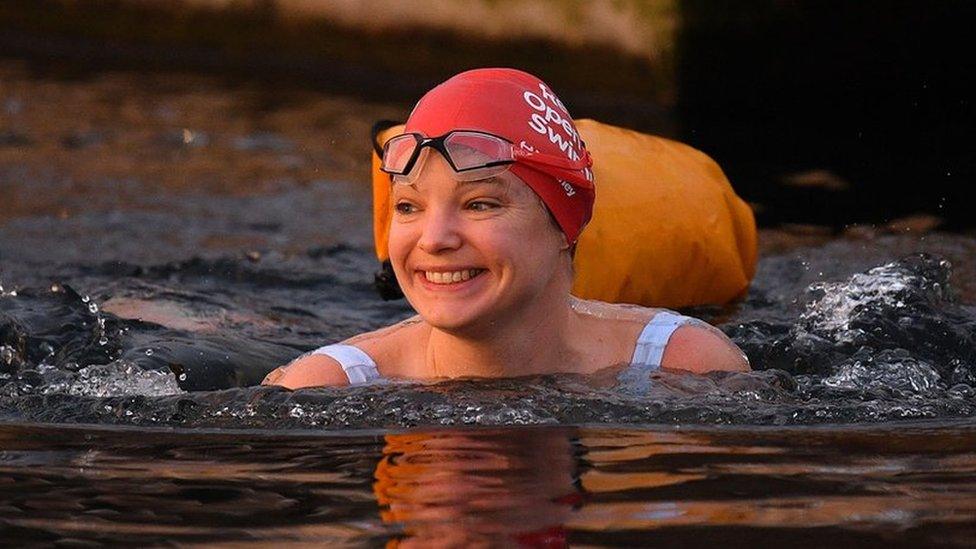The 'citizen scientists' testing Thames pollution
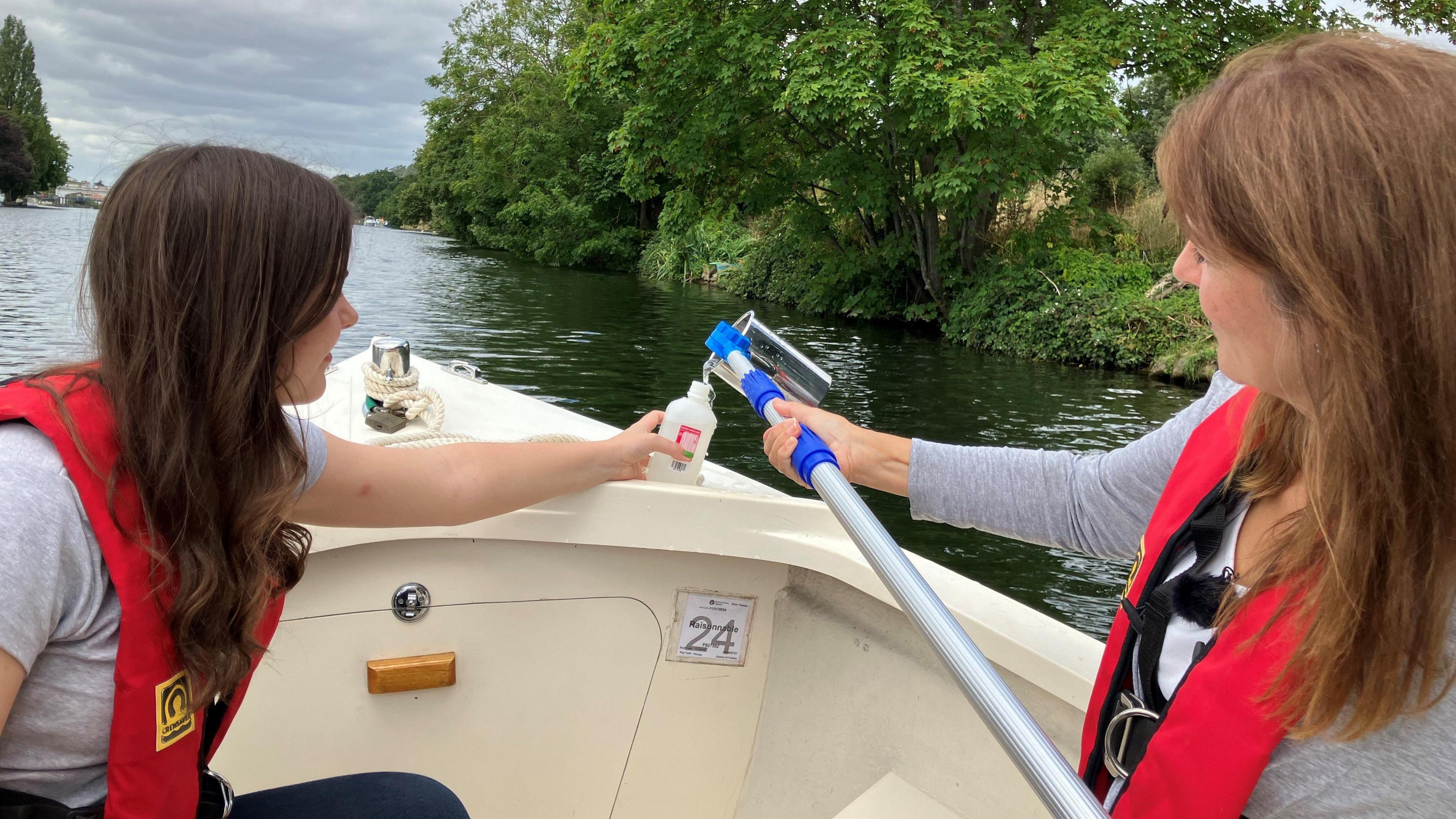
"Citizen scientists" have been testing the Thames' water quality since May
- Published
Water companies that pollute the River Thames have "no accountability", a group of "citizen scientists" who monitor the waterway have said.
The groups, which include Surfers Against Sewage (SAS) and Water Testing River Thames (WTRT), have been testing at 24 sites between Oxford and Teddington, west London, between mid-March and mid-August.
Of the 210 tests carried out, the groups said 47 failed when it came to harmful levels of e-coli or intestinal enterococci.
Thames Water said it was "committed to seeing our waterways thrive" and has been upgrading 250 sites to help prevent overflows.
Water pollution can be caused by illegal spills into the river or when the whole system can not cope, often during heavy rain.
Frances Mateo, who was out testing the river in Teddington on Wednesday, told BBC London the state of the river had "shocked" her.
"The other thing that's shocking is that in my social circles a lot of people are asking me, 'is the river safe? Is the river safe for my children to do sports in?'" she said.
"They're hesitating because to be honest what we've found is it's not."
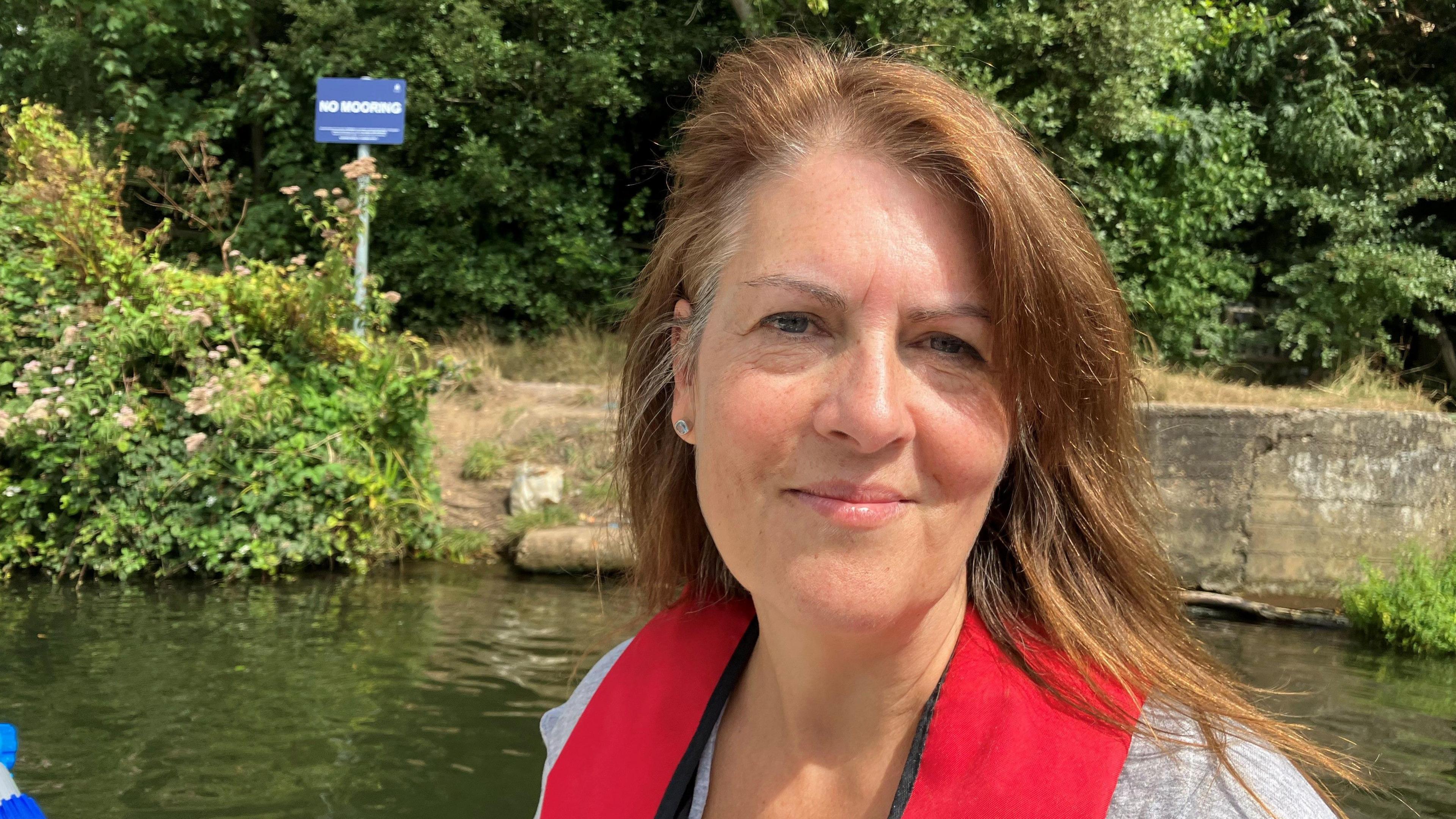
Frances Mateo said water companies do not face enough accountability
The number of hours in which sewage was dumped into the River Thames more than quadrupled in the last year, figures released by City Hall in January showed.
Izzy Wittrock said her team had done one test of river quality a week for the past seven weeks and two came back with a "poor rating".
"Which essentially means the water is unsafe to swim in," she added.
Ms Mateo said part of her focus with taking part in the tests is to bring "awareness and accountability".
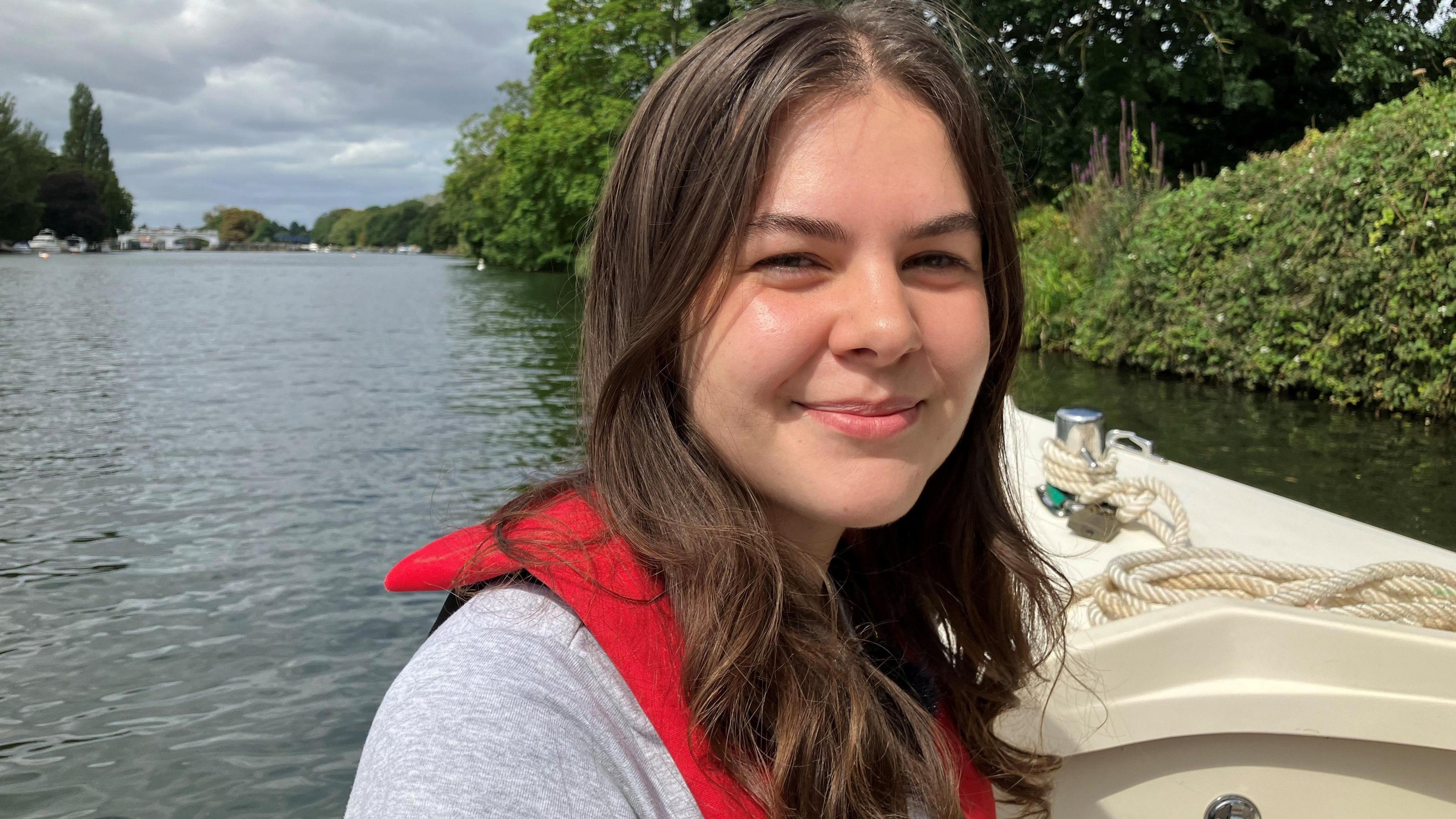
Izzy Wittrock says the water quality has been "poor" during some test days
She said the current system of fining water companies when they illegally pollute rivers does not act as an effective deterrent.
"Until there's real government policy to make our water companies accountable, I think this will just continue," Ms Mateo said. "So citizens have got to come forward and do our own testing and have a voice."
Plans by Thames Water take more water from the River Thames at Teddington and replace that water with recycled sewage effluent from the Mogden treatment works has also attracted opposition.
Ian McNuff, from the Save Our Land and River campaign group, said the company "cannot be trusted to do that properly".
Thames Tideway Tunnel: Inside London's new 'super sewer'
A Thames Water spokesperson said: "While all storm discharges are unacceptable, the sewage system was historically designed to work in this way, to prevent sewage backing up into people’s homes."
Among the 200 site upgrades being carried out are a £100m upgrade of the Mogden sewage treatment works and £14m upgrade of the Beckton site, which the spokesperson said would increase treatment capacity and reduce storm discharges.
They also pointed out the Thames Tideway Tunnel, London's new super sewer, would help reduce overflows into the Thames - although not all of its tributaries.
Listen to the best of BBC Radio London on Sounds and follow BBC London on Facebook, external, X, external and Instagram, external. Send your story ideas to hello.bbclondon@bbc.co.uk, external
- Published15 August 2024

- Published12 February 2024
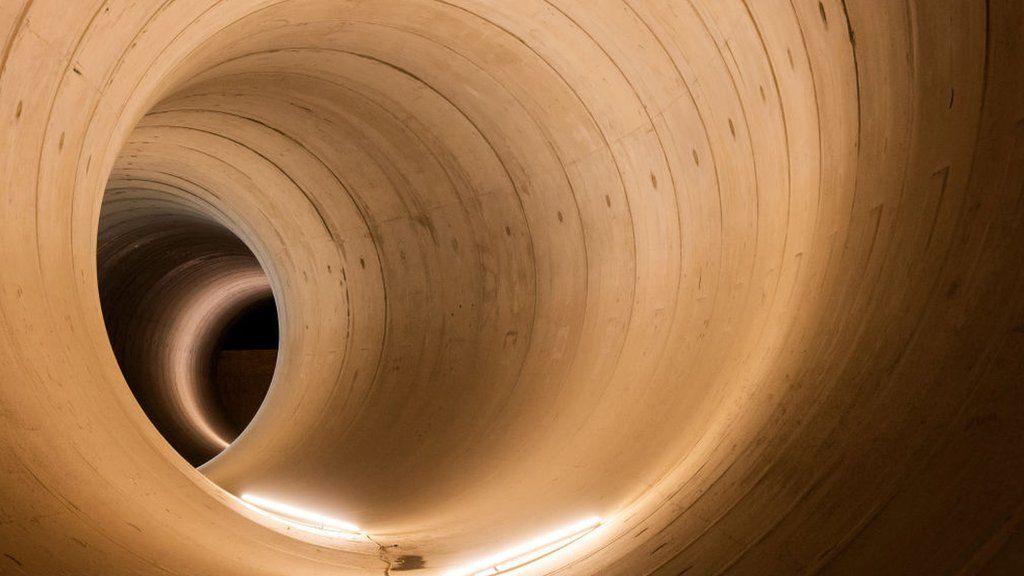
- Published13 January 2022
